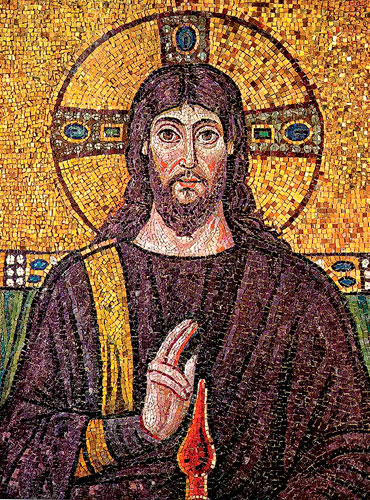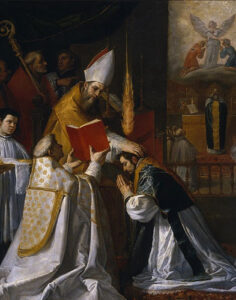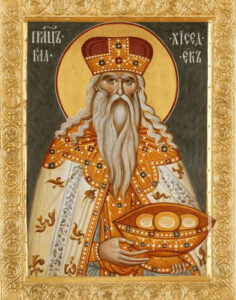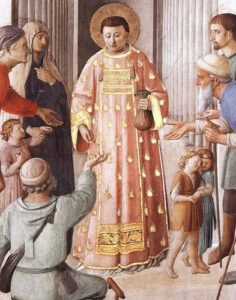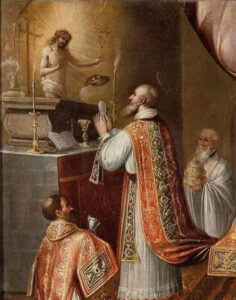Saturday of the Eighth Week of Ordinary Time – Mk 11:27-33
In today’s Gospel, we’re immediately struck by two things: first, the apparent inability of the chief priest, the scribes, and the elders to see who Jesus is, and second, and more importantly, the reason why they can’t see this. Regarding the first, out of all the people in Biblical Israel, we would expect that these three groups to recognize the Messiah when He came, since these are the ones who were responsible for religious worship and for teaching the Jewish faith to the entire people. After all, the entire Jewish faith was centered around setting apart God’s people for salvation and pointing out the Messiah when He came to bring that salvation, and indeed, many common people, like fisherman, tax collectors, and the like, had already come to believe in Christ, and know Him to be a man sent from God.
Yet, in today’s Gospel, these same groups, who are charged with being an example and with teaching, ask Christ: “By what authority are you doing these things? Or who gave you this authority to do them?” That word authority, eksousía, ἐξουσία, can also be translated as power. From where comes your power to do these things? It’s the perennial question that those in authority have been asking Christ since He started His public ministry. Yesterday’s Gospel presented the cleansing of the Temple, but by saying these things, and not just that thing, the questioners probably had in mind, not just that one isolated event, but rather every miracle or exorcism that Christ had performed.
What’s really important, though, is to see why they can’t see who Christ is. In response to their question, Jesus replies with a question of His own: was John’s baptism divine or simply something human? Rather than really try to discern the answer using supernatural criteria, the groups are guided by merely natural and human motives. If they say “divine,” then they are in trouble, because John pointed out Christ as the Lamb of God, and hence they should believe in Christ as well. If they say “human,” they will lose human respect. So, they muster the best possible answer they can: “We do not know.” What they really mean by that, though, is “We don’t know, because we don’t want to know.” If they had sat down and thought for a bit, they would have figured it out. However, as so many people had already realized, if John was sent by God, and you come to believe in him, you also have to change your life, because if faith is real, it changes you, and if it doesn’t change you, then it isn’t faith. The groups, then, really reply: “We don’t know, because we don’t want to know, because that would mean changing the way we live.” To such a willful ignorance, Christ replies that, if they can’t discern God working through John, then they certainly aren’t willing or able to see God Himself at work.
We can apply the lessons of this Gospel to our lives. We’ve all received the graces of baptism, confirmation, and our vocations; we know who Jesus is, and we believe in Him. Yet, we need to allow ourselves to be guided by supernatural criteria and to let that grace permeate every aspect of our lives. In particular, we need to be able to see God at work, particularly though other people, like our community members, and we need to live out our faith at every moment, and this by following our Constitutions and our schedules.
In the Gospels, Christ asks many questions (some lists give as many as 130): most are rhetorical, meaning, He’s not looking for an answer. Here, though, notice that Christ says specifically, “Answer me.” He demands a response. At the end of each day, as we examine our conscience, Christ asks us two questions: “What did I do today to help you become a saint?” and “What did you do for Me to help you become a saint?” The answer, “I don’t know” doesn’t cut it; it won’t suffice today or at the Final Judgment. Rather, we should answer, “I embraced what Your Will sent me,” and “I simply followed the Constitutions and the schedule, and lived them to the full.” Like the groups in today’s Gospel, we are called to give an example and to teach the faith with our lives. There can be no half-hearted means or willful ignorance of it.
Today, through the intercession of Our Lady of Lujan, let us ask for the grace to live out our vocations fully, knowing that we, who are called to be particularly close to the Sacred Heart of Jesus, must recognize Him when comes to us, particularly under the disguise of daily crosses and consolations.

